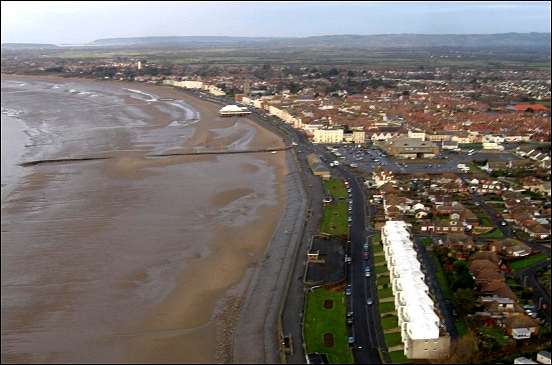Sedgemoor District Council has this week voted for a motion to ban fracking along part of Somerset’s coastline, including Burnham-On-Sea.
This follows the government announcement in 2015 stating seven new licence areas for shale gas exploration and extraction would be created along the Somerset coast, stretching from Minehead to Clevedon.
Sedgemoor District councillors could approve the ban in full when it meets in Bridgwater on October 9th.
Somerset West and Taunton Council also voted against the new fracking areas this year in July, banning fracking along its section of the coast, which includes the Exmoor National Park.
Councillor Phil Harvey said fracking could have a negative impact on tourism, particularly in towns like Burnham-On-Sea.
He said: “‘Come to Burnham for fun, frolics and fracking’ is not going to be the best tag-line, is it?”
Cllr Alan Bradford added that he was also worried about the impact of fracking in the area and how it could affect the district’s water supplies.
The final decisions on any formal fracking proposals will be taken by Somerset County Council or the Exmoor National Park Authority, depending on the location in which companies desire to operate.
What is fracking?
Fracking is the process of drilling down into the earth before a high-pressure water mixture is directed at the rock to release the gas inside.
Water, sand and chemicals are injected into the rock at high pressure which allows the gas to flow out to the head of the well.
The process can be carried out vertically or, more commonly, by drilling horizontally to the rock layer, which can create new pathways to release gas or used to extend existing channels.
The term fracking refers to how the rock is fractured apart by the high-pressure mixture.
The shale gas that is released is a natural gas consisting mostly of methane, which can be used to provide energy for domestic heating and cooking. It’s found in shale rock, which is buried deep underground.
Unlike most natural gas, shale gas can’t flow through rock, so the only way to extract it is by fracturing the rock apart.
Before companies can begin fracking they must receive planning permission from the relevant local council.
As well as earth tremor concerns, environmentalists say potentially carcinogenic chemicals may escape during drilling and contaminate groundwater around the fracking site.
Campaigners also say fracking is distracting energy firms and governments from investing in renewable sources of energy, and encouraging continued reliance on fossil fuels.
The government believes shale gas has the potential to provide the UK with “greater energy security, growth and jobs” and says it “could be an important part of our transition to a low carbon future”.







